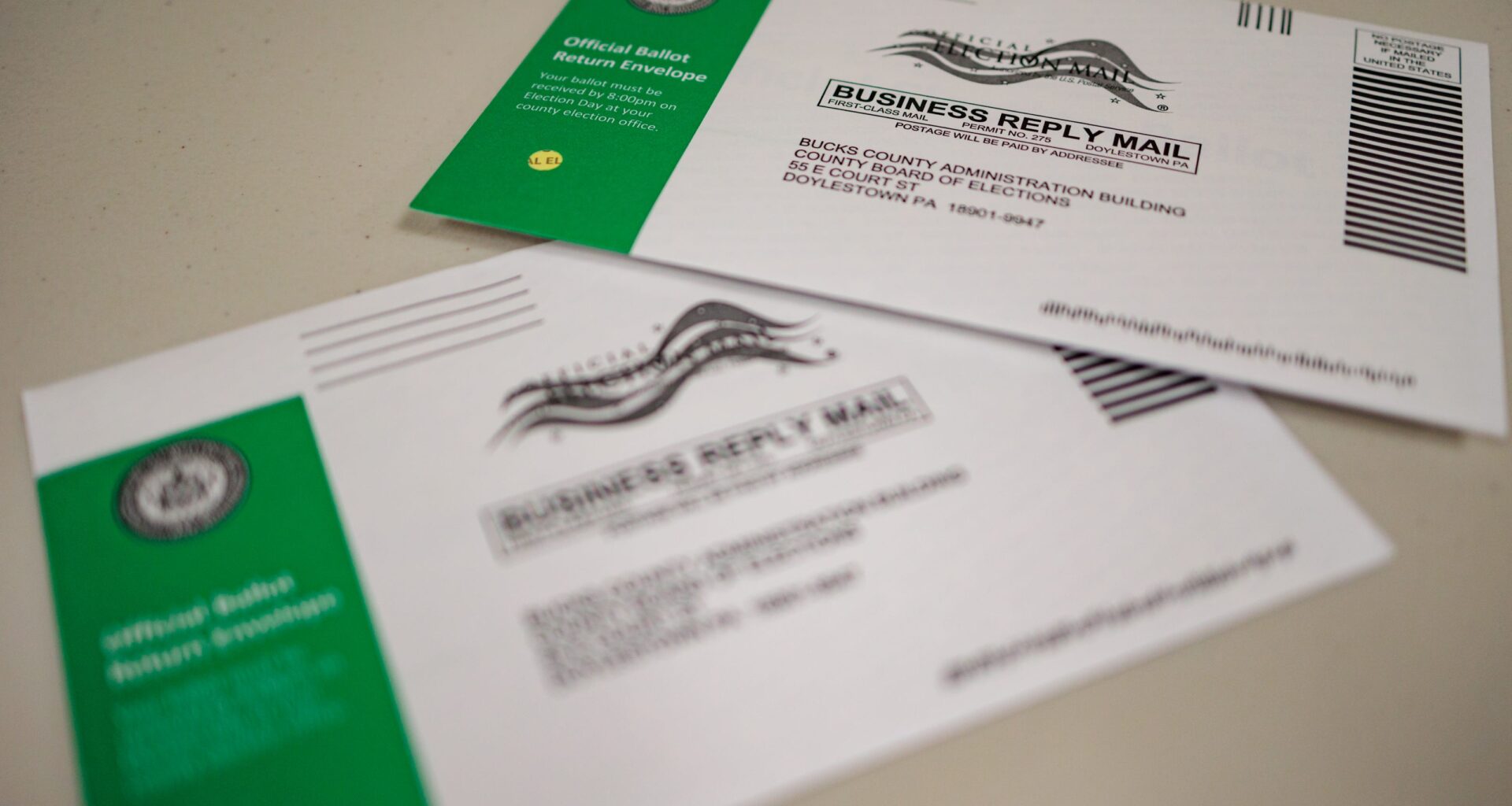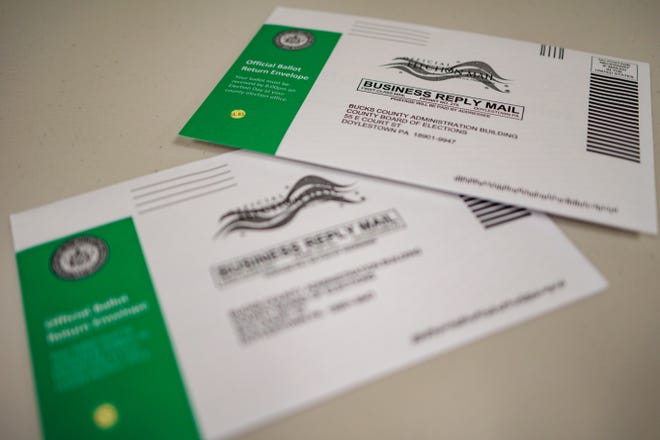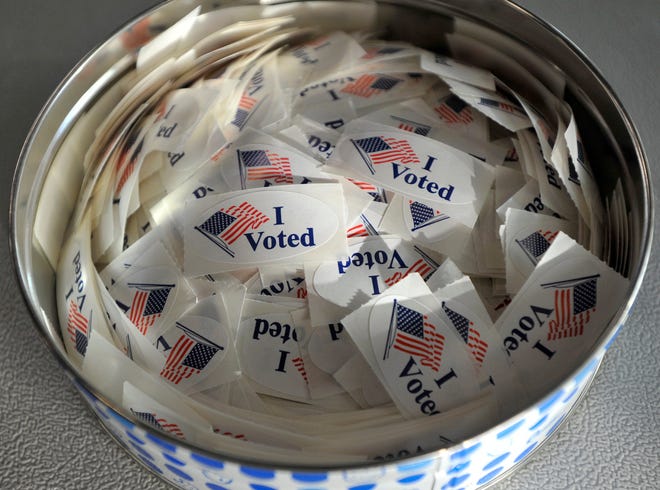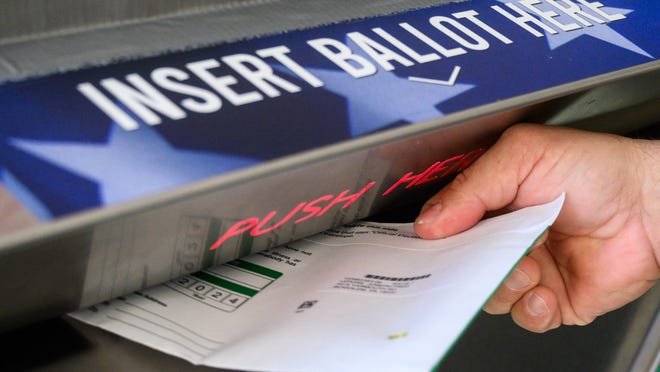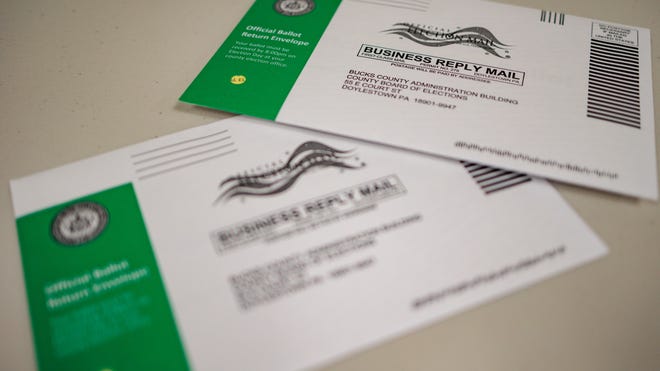
While the nation’s eyes Tuesday night will be on a handful of swing states expected to determine the outcome of the 2024 presidential election, it may not be known for days who won Pennsylvania and Wisconsin. State laws governing when ballots can be processed in those states may mean a repeat of 2020, when it wasn’t until the Saturday after the election that Pennsylvania’s results gave Democratic nominee Joe Biden the votes needed to secure a majority in the Electoral College.
In response to that days-long wait, many states overhauled their election laws to make it faster to count vote by mail, absentee and overseas ballots. While Pennsylvania and Wisconsin are often lumped with Michigan in the “blue wall” of Rust Belt swing states, they now differ in one important way: Michigan allows election workers to begin tabulating mailed-in ballots more than a week before Election Day, though the results cannot be revealed until after the polls close.
But the state legislatures in Pennsylvania and Wisconsin have not made similar changes to election procedures and experts expect their results to come in later than Michigan, or the other swing states of Arizona, Georgia, Nevada and North Carolina.
The Keystone and Badger states each prohibit election officials from beginning to open and count absentee ballots until 7 a.m. Election Day, when they must also deal with in-person voting.
The Pennsylvania State Secretary’s office describes it this way on its website: “Hundreds of thousands – sometimes millions – of mail ballots are cast in every election, and current state law does not permit counties to begin opening these ballots until 7 a.m. on Election Day. That means county election officials cannot even remove the ballots from the envelopes and prepare them to be scanned until that time – on a day when those same officials are also running more than 9,000 polling places across the state.”
Sign-up for Your Vote: Text with the USA TODAY elections team.
No preprocessing of vote by mail or absentee ballots
According to the Brennan Center for Justice, 43 states allow pre-processing of mail-in ballots, which includes verifying the voter’s information and eligibility on the mail ballot envelope, opening the envelope, and removing the ballot.
Carolina Lopez, executive director of the Partnership for Large Election Jurisdictions, said the inability to do preprocessing doesn’t mean Pennsylvania or Wisconsin are slow, has fraud or that there is any problem with their procedures.
“Not every state is created equal, right? So if you’re from Florida, you’re going to get results a little quicker, simply because we have 22 days of pre-processing,” she said. “If you’re in Pennsylvania and Wisconsin, by law, they’re not allowed to start until Election Day. So it’s just a quick numbers game. It doesn’t mean that Florida is more efficient or less efficient than some of their counterparts. It just means that the laws are a little different.”
‘People have to be patient’
Local election clerks in Pennsylvania and Wisconsin have repeatedly pushed state lawmakers since 2020 to allow preprocessing, said Lawrence Norden, Vice President of the Elections & Government Program at the Brennan Center for Justice.
In “Pennsylvania, Wisconsin, the election officials have been begging for years, and certainly since 2020, to allow them to process mail ballots earlier, the way they do in most of the other battleground states, so that on election night they just press a button and can have the results. Their state legislatures wouldn’t do it,” he said.
Because the state legislatures didn’t act, local officials have sought to solve the problem on their own.
In Pennsylvania, the Democratic-controlled House and Republican-controlled Senate couldn’t agree on a bill that would allow early processing. Republicans wanted to tie it to expanded voter ID requirements, Democrats refused. When Republicans controlled both chambers in 2021 they expanded voter ID requirements, and the Democratic governor vetoed it.
Pennsylvania has made improvements since 2020, and it is not expected to take until the weekend to count all the ballots this time. County election directors have now had multiple cycles working with vote-by-mail and have received millions of dollars through a state-funded grant program that allowed some to purchase machines to help more quickly open and sort mailed ballots.
Abigail Gardner, a spokesperson for the Allegheny County government, said staff are expecting up to 250,000 absentee ballots and about 450,000 in-person votes. She said vote counting might be faster than it was in 2020 because they are expecting fewer absentee ballots, and they have brought on more staff and purchased high-speed envelope openers.
In Wisconsin, where Republicans control both chambers of the legislature, a Republican-led effort to allow for early canvassing stalled in the Senate in February. The state Assembly had passed a bill in November that would allow election workers to begin processing absentee ballots the day before an election. The Democratic governor had said he would sign the bill if it reached him.
Local election officials can choose to count vote-by-mail ballots either at the ballot locations or at a central location. Most of the larger jurisdictions have chosen central locations and have bought high-speed machines to speed up processing, Marge Bostelmann, member of the Wisconsin Elections Commission, told USA TODAY.
“It may be a little quicker, but it really all depends on how quickly the ballots can be input and how quickly the machine will read them after they’re put into the machine,” Bostelmann said.
In Wisconsin, over 1.2 million absentee and vote by mail ballots had already been received as of Oct. 31, according to the state Elections Commission. In 2020, Wisconsin’s result was called by the Associated Press around 2 p.m. the day after the election. Multiple state election officials have warned that it could be the middle of the night, or sometime Wednesday before the mail-in ballots are counted.
Jay Heck, executive director of the good-government watchdog Common Cause in Wisconsin, said in-person voting in his state is expected to be counted before midnight on Election Day. But tabulating absentee ballots for the combined unofficial results could take until 2 a.m., he said.
“People have to be patient,” Heck said.
In 2020, Trump declared victory before the votes were all counted
Last time, then-President Donald Trump, who is again the Republican nominee in 2024, didn’t wait for the mail-in votes to be counted: he declared victory while he was ahead because his supporters had been more likely to vote in person. Then, he made false accusations of late-night “ballot dumps” of illegal votes when the mail-in ballots had been counted and added to the totals, something that in many states occurred in the middle of the night.
When the final vote count showed Biden winning Pennsylvania by about 80,000 votes, Trump claimed without evidence the election was being stolen from him in the state. Trump also claimed fraud when Biden won Wisconsin by 20,700 votes.
Polls have consistently shown a very tight race between Trump and Vice President Kamala Harris in every swing state, including Wisconsin, where Trump leads Harris 48% to 47% according to a late October USA TODAY/Suffolk University poll, and Pennsylvania, where Trump leads by less than 1 percentage point in the FiveThirtyEight polling average.
Trump has told his rallies to expect a big victory on Tuesday, saying Oct. 30 he could only envision losing “if it was a corrupt election.”
“If there are tens of millions of people who believe that this election can only be won by one candidate, you can imagine the shock that might occur if that candidate loses, and the way that could be leveraged into anger and potentially violence in the post election period,” David Becker, executive director of the Center for Election Innovation and Research, said.
‘Just don’t have the money or the staffing’
In Pennsylvania, there is the added wrinkle that some people vote by mail in place of early in person voting. Many counties without early voting allow people to apply in person for a vote by mail ballot, then they can fill it out and immediately drop in off.
As of Oct. 31, nearly 2.2 million absentee and vote by mail ballots had already been received, according to the state.
Data from Pennsylvania shows that while Republicans are increasing voting by mail, they are still outnumbered substantially by the number of Democrats.
Widener University Political Science Professor Wesley Leckrone, an expert on Pennsylvania politics, said he expects the larger population centers to process those ballots quickly because they have the money to hire staff. His concern is the surrounding high-population suburban counties that are key to determining the winner won’t be able to process results Tuesday and it could be later in the week before the outcome is known.
“There’s a lot of counties that just don’t have the money or the staffing to be able to do this,” he said. “It could well be Trump will be up at 10 o’clock on Tuesday night but not all the mail in ballots have been brought in.”
